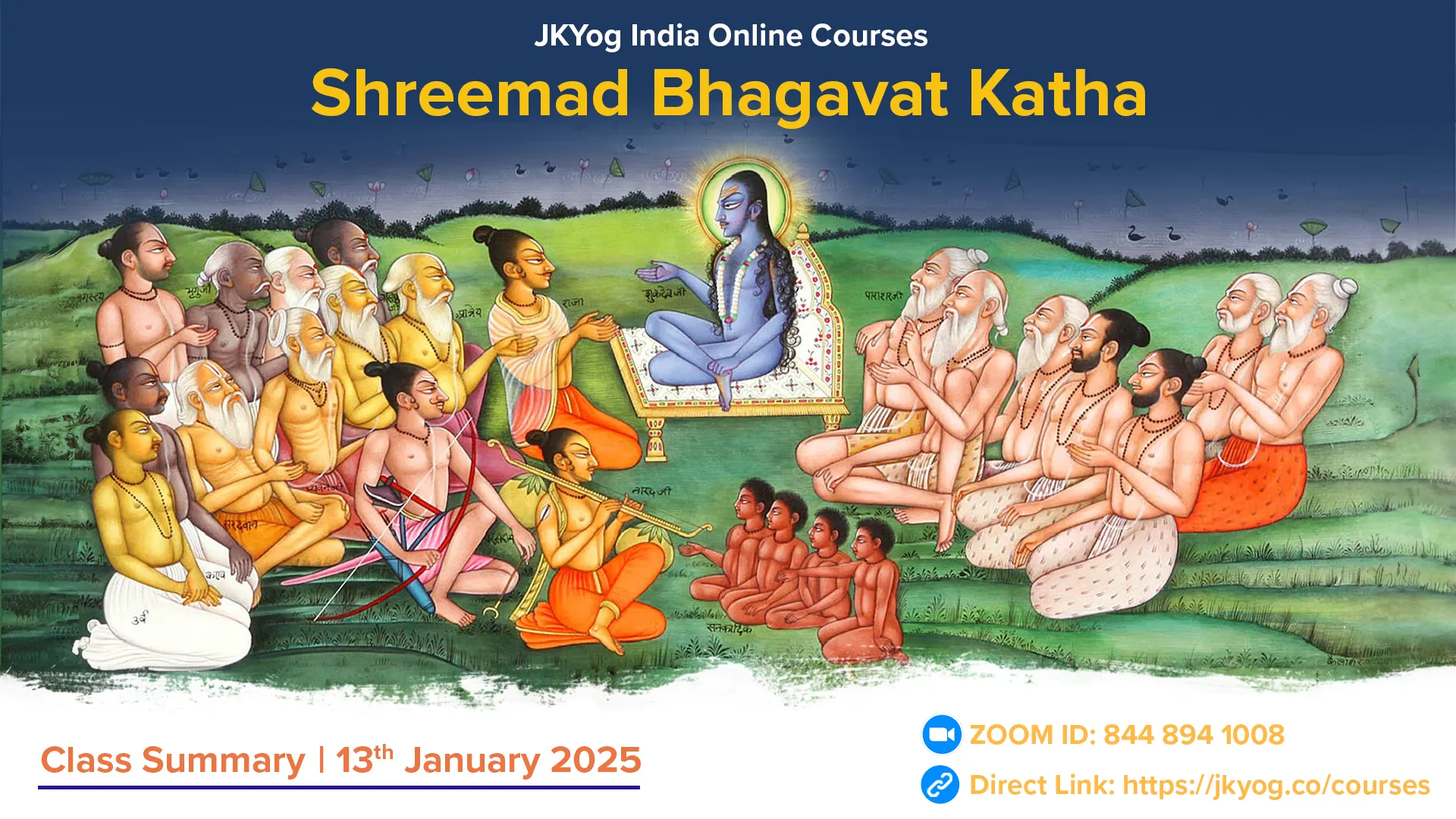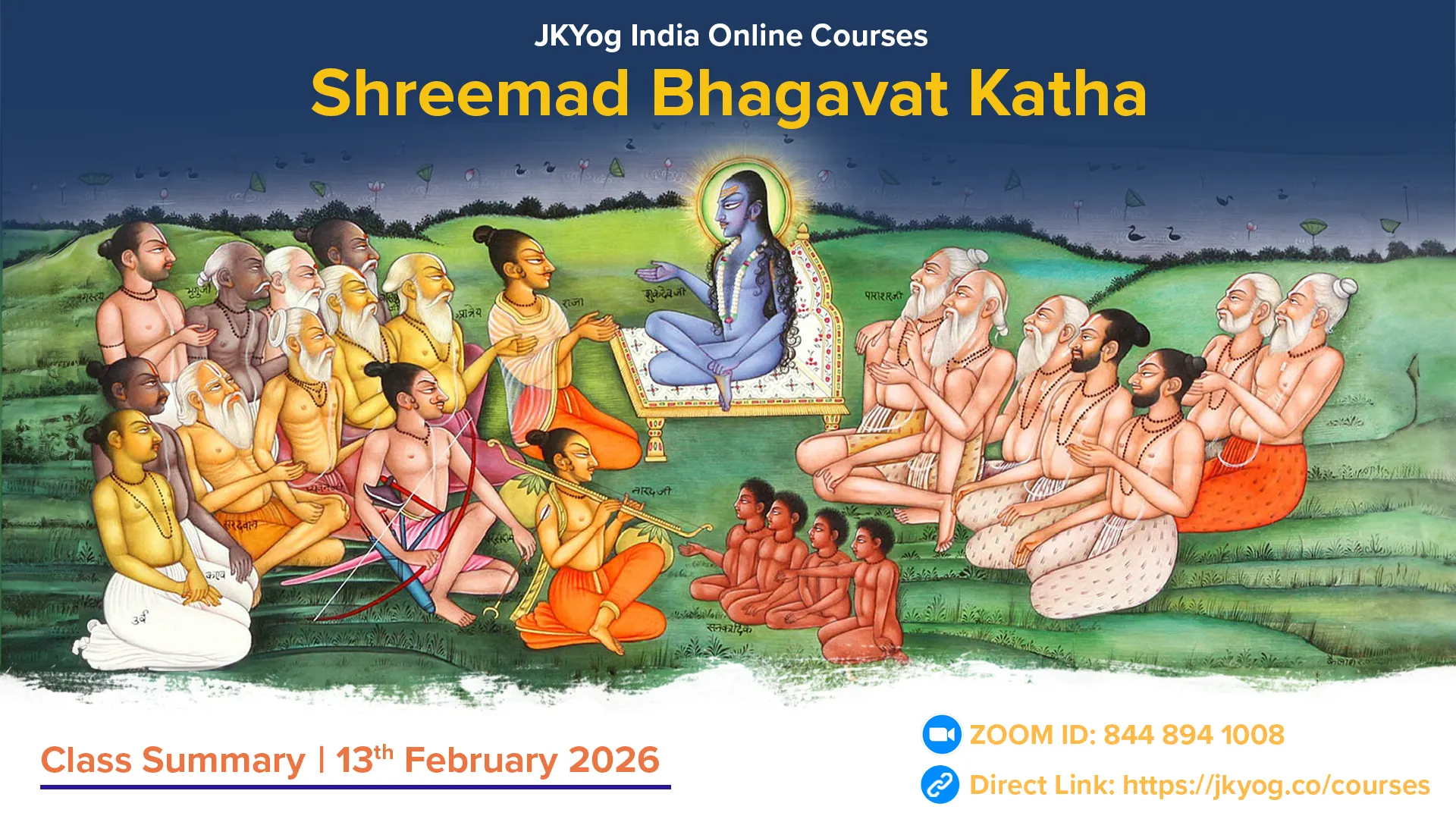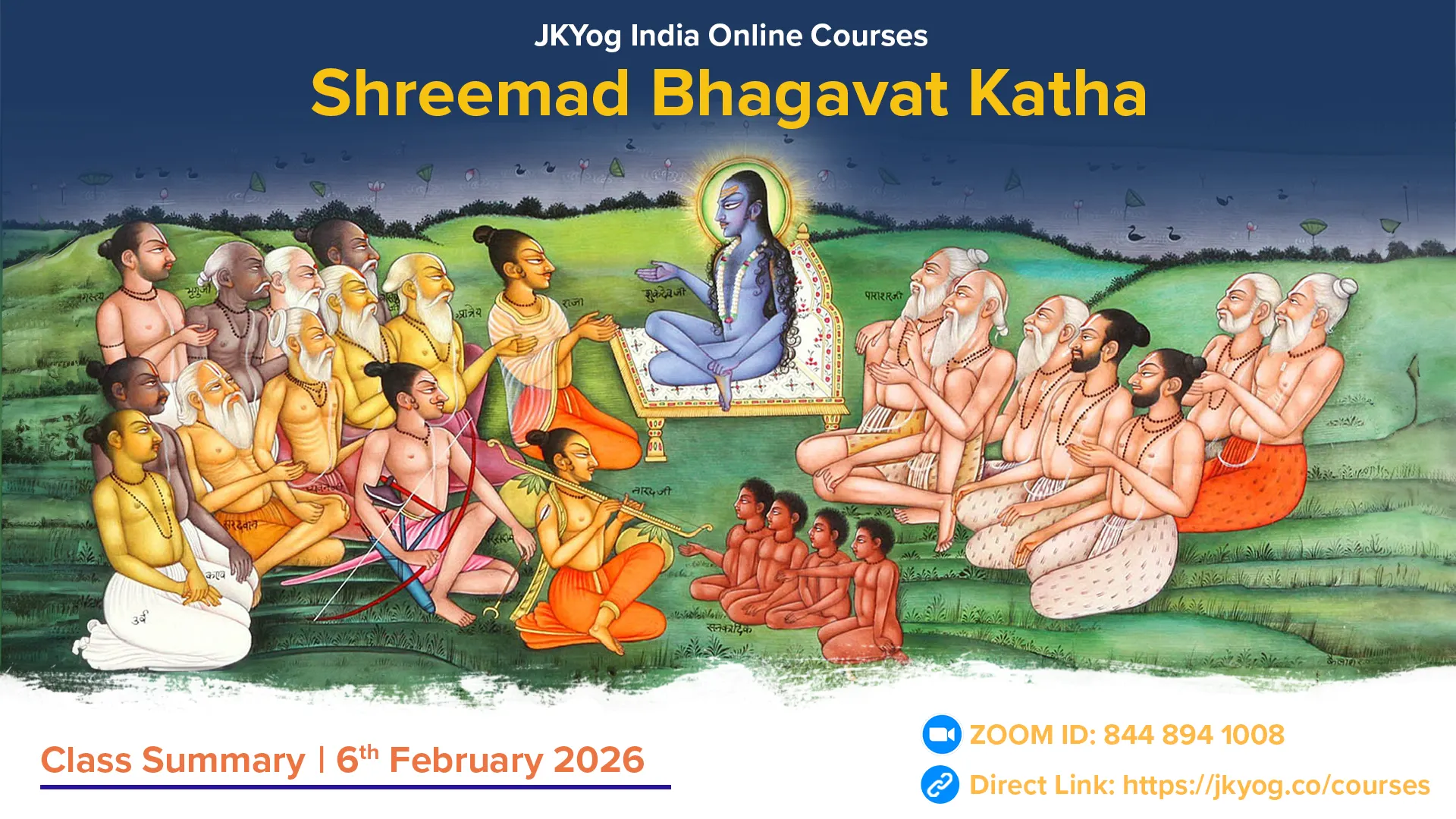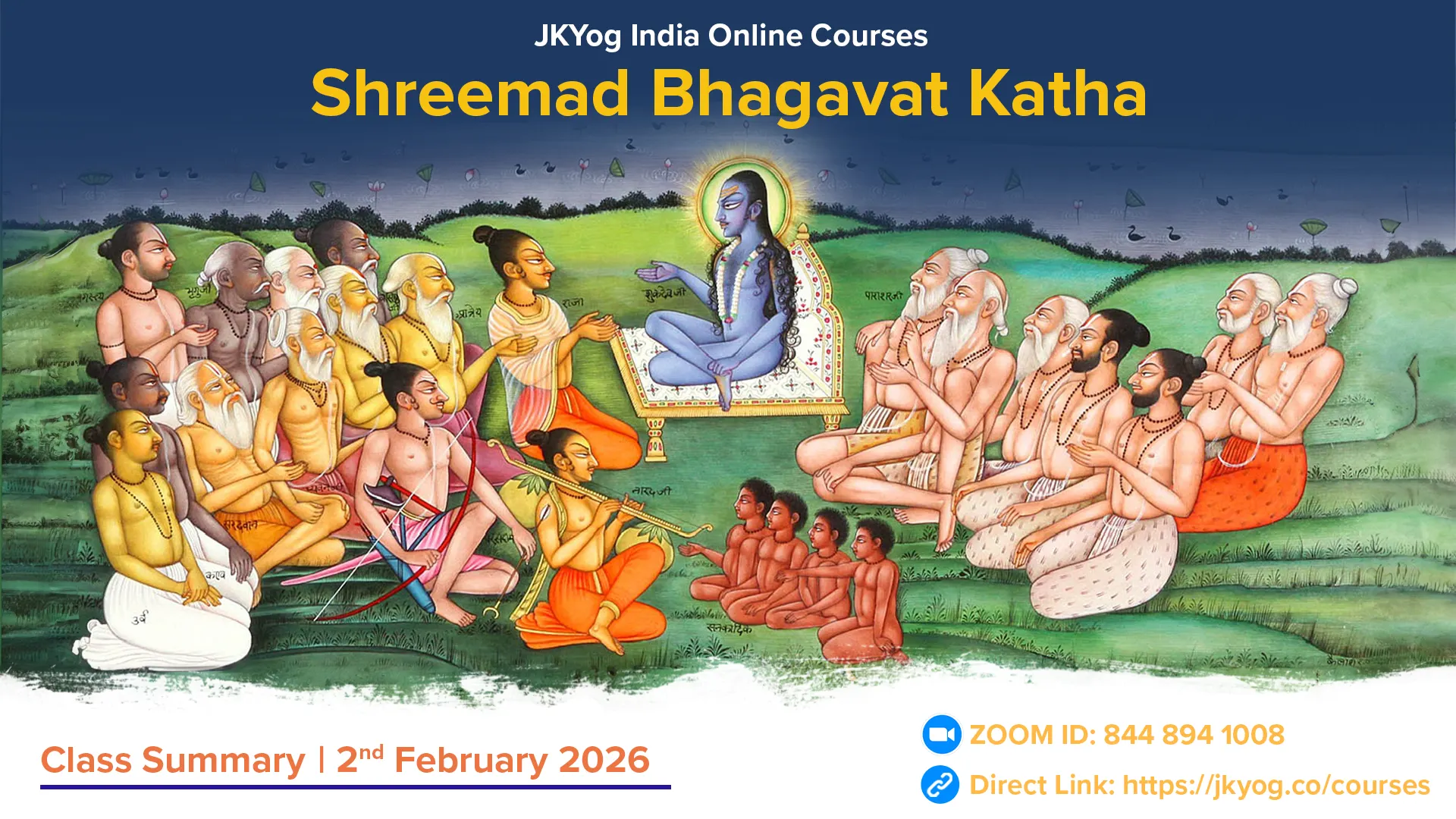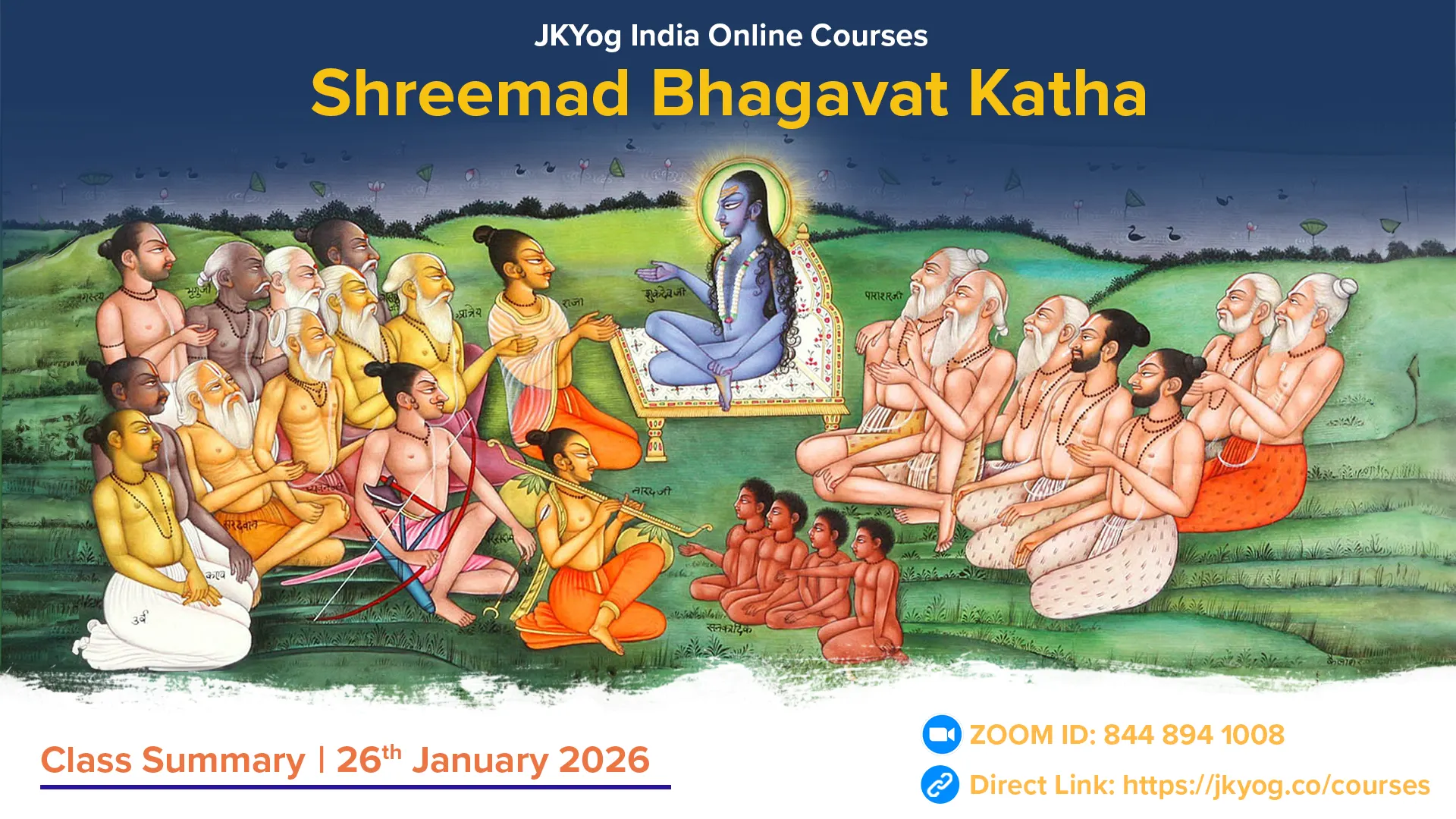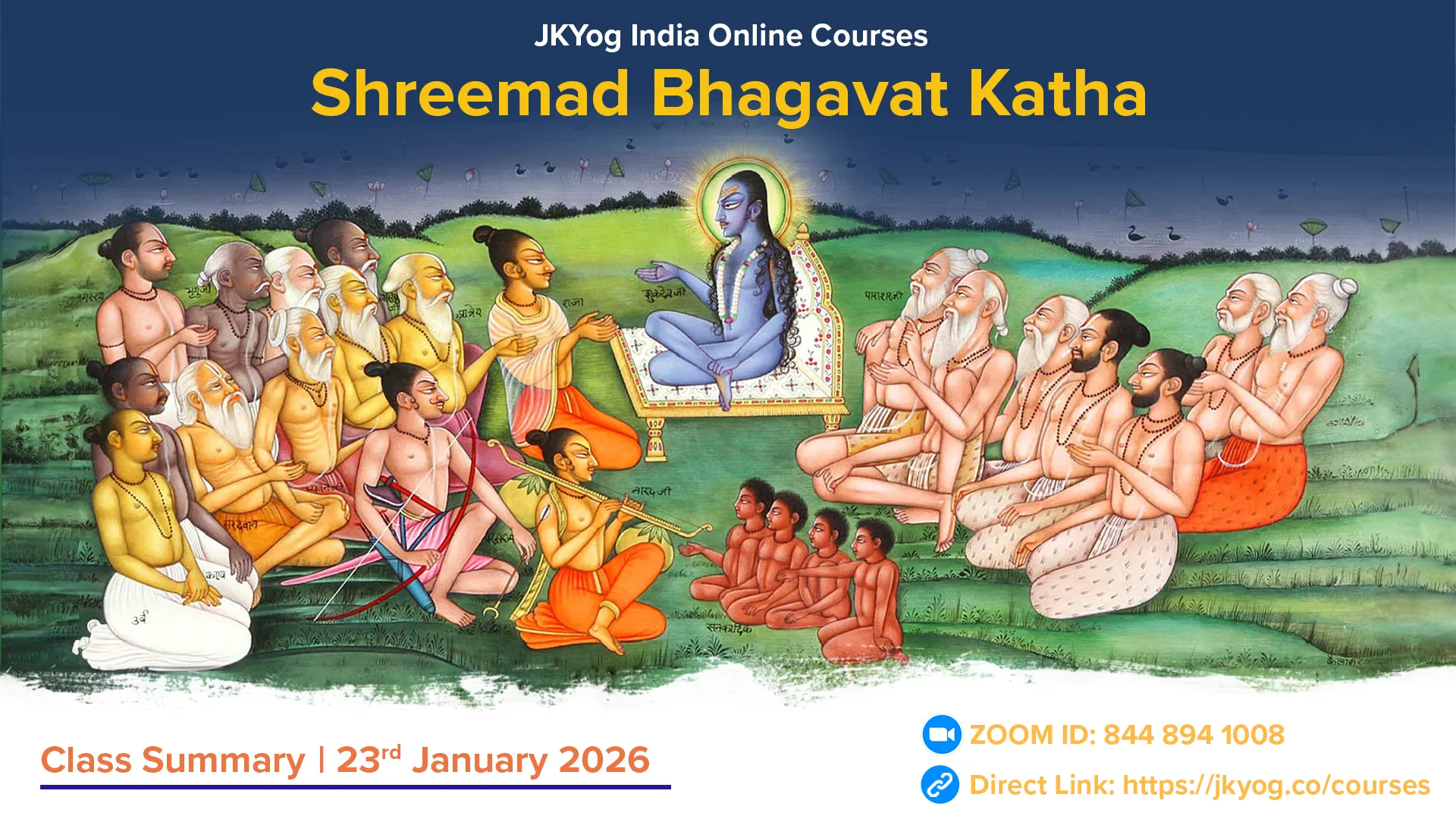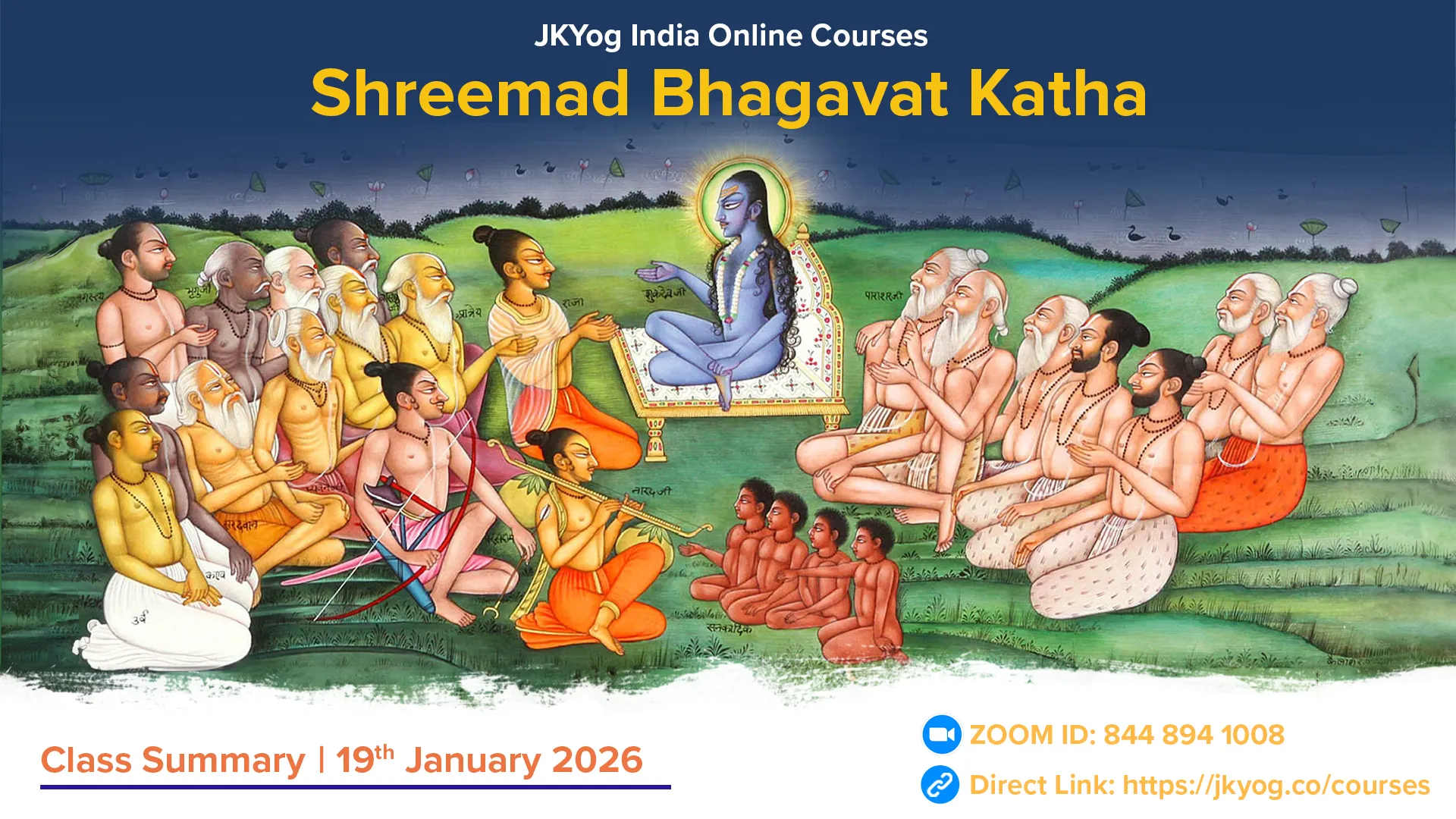Shreemad Bhagavat Mahapuran- Canto: 5, Chapters: 9-10
Bhagwan Rishabhdev's son, Maharaj Bharat, after whom this region was named Bharatvarsh, was a great devotee of God. After ruling for one crore years and renouncing his kingdom, all luxuries, wealth, power, wives, children, and family, he engaged in devotional practices near Pulah Ashram on the banks of the Gandaki River. However, one day, after saving a fawn, he became deeply attached to it, which distracted him from his devotion. At the time of death, he remembered the deer and was born as a deer in his next life. Due to the influence of his past life's devotion, he retained the memory of his previous birth, repented for his mistake, and eventually left the deer's body.
Shree Shukadevji continues the story, saying, "In the Angiras lineage, there was a great Brahmin endowed with virtues like self-control, asceticism, study of scriptures, renunciation, contentment, forbearance, humility, knowledge, non-enviousness, self-realisation, and bliss. He had nine virtuous sons from his elder wife, and from his younger wife, he had a son and a daughter. The son was none other than the supreme devotee and Rajarshi Bharatji, who was earlier born as a deer and now took birth as a Brahmin."
Bharatji lived detached from the world, constantly meditating on the feet of Bhagwan. To others, he appeared mad, blind, or deaf, but in reality, his mind was absorbed in divine remembrance. His father performed his sacred thread ceremony as per the scriptures and attempted to educate him. However, Bharatji did not follow his father's instructions. Even after four months of teaching, he could not recite the Gayatri properly.
Despite Bharatji's lack of interest, his father, out of immense affection, continued to teach him the duties of a Brahmachari, such as cleanliness, Vedic studies, observing vows, serving the guru and fire. However, his efforts remained incomplete as he himself was engrossed in household duties, neglecting the primary duty of worshipping God. Eventually, death claimed him.
After his passing, the younger wife became Sati, entrusting her children to others. Bharatji's brothers, who valued rituals over spiritual knowledge, considered him foolish. After their father's demise, they abandoned efforts to educate him further, leaving Bharatji to follow his unique path of devotion.
Bharatji was indifferent to honour or insult. When people called him mad, foolish, or deaf, he behaved accordingly without protest. He fulfilled their wish without resistance if anyone asked him to do a task. He accepted whatever food, good or bad, came his way without paying attention to its taste.
Having attained self-realisation, Bharatji remained unaffected by dualities like heat and cold or honour and insult. Though his body was strong and healthy, he neither applied oil nor bathed, leading to dirt accumulating on his body. His divine radiance was like a precious jewel hidden under dust. He wore a soiled cloth around his waist, and his sacred thread had also become dirty. Ignorant people considered him insignificant and insulted him, but he remained unaffected by their behaviour.
To sustain himself, Bharatji worked as a labourer. His brothers assigned him to level the fields. However, Bharatji paid no attention to whether the fields were even or uneven. Whatever leftover food—broken rice grains, husks, or burnt scraps—his brothers gave him, he accepted with gratitude, treating it as nectar.
At that time, a dacoit leader, desiring a son, resolves to offer a human sacrifice to Devi Bhadrakali. However, the person they initially captured for the sacrifice escapes, and the dacoit's men set out to find him. By chance, they spot the Bharatji guarding the fields and consider him a suitable candidate for the sacrifice. They bind him with ropes and take him to the Devi's temple.
Following the rituals, they bathe and adorn Bharatji with new clothes, ornaments, sandalwood paste, and garlands. They offer him food and then, amidst the sound of drums and cymbals, place him before Devi Bhadrakali for the sacrifice. The dacoit priest, chanting mantras, approaches with a sharp sword to perform the sacrifice.
The dacoits, inherently dominated by rajasic and tamasic qualities, had their minds further clouded by the arrogance of wealth. Their natural inclination towards violence was now unchecked, leading them to stray even further onto the path of unrighteousness. Despite their sacrilegious behaviour, they disregarded the sanctity of a Brahmin, who is considered a part of Bhagwan's essence. Even in times of calamity, the scriptures strictly forbid the killing of a Brahmin, yet they intended to sacrifice a sage-like Brahmin youth who had attained a state of oneness with the Divine and was a friend to all beings.
Witnessing this horrific act, Devi Bhadrakali was filled with an unbearable surge of divine fury. Her divine effulgence radiated intensely, causing her idol to shatter as she suddenly manifested. Overwhelmed by rage and intolerance, her eyebrows arched sharply, and her terrifying appearance, with fierce fangs and blood-red eyes, struck fear in all who saw her. It seemed as though she would destroy the entire world in her wrath.
In her anger, she let out a thunderous and terrifying laugh. Leaping forward with the same consecrated sword, she decapitated all the sinners in an instant. Along with her celestial attendants, she drank the hot, flowing blood from their severed necks as though it were divine nectar. Completely intoxicated with fury, she began singing and dancing wildly, using the severed heads as balls to play with.
Shree Shukdevji says, "The consequences of atrocities committed against great souls always rebound on the wrongdoer. Parikshit! Those who have freed themselves from the knot of egoistic attachment to the body, who are friends and well-wishers of all beings, who are self-realised and devoid of enmity, are directly protected by God Himself. He manifests in forms like Bhadrakali and wields His infallible weapon in the form of the eternal wheel of time to safeguard such devotees.
These exalted devotees, who have taken shelter at the fearless lotus feet of Bhagwan, remain undisturbed even in the face of death. That they are not agitated even when their own execution approaches is no great surprise, for they are firmly established in divine consciousness."
King Rahugan Meets Jadbharat and insults him
Shree Shukdevji narrates, "O Parikshit! Once, King Rahugan, the ruler of Sindhusauveer, was travelling in a palanquin. When he reached the banks of the Ikshumati River, the head of the palanquin bearers realised he needed an extra bearer.
While searching for one, he saw this Bharatji by divine providence. Observing his sturdy, youthful, and well-built physique, the head bearer of the palanquin thought, 'This man is as capable as a bull or a donkey in carrying a load.' With this assumption, he forcibly conscribed Bharatji and the other labourers to carry the palanquin.
Although the great sage Bharatji was unfit for such a task, he remained silent and began carrying the palanquin. However, being a compassionate soul, he moved carefully, watching the ground to ensure no living creature was crushed underfoot. His deliberate pace did not align with the other bearers, causing the palanquin to sway unevenly.
Noticing the jerky movements of the palanquin, King Rahugan exclaimed to the bearers, 'Hey! Walk properly! Why are you carrying the palanquin in such an uneven manner?'
Terrified by the king’s anger, the bearers humbly said, “Maharaj, this is not our fault. We are carrying the palanquin as per your instructions. However, this new bearer has just joined us and is walking too slowly. We cannot keep pace with him.”
Hearing their humble explanation, King Rahugan thought, “A fault in one individual can spread to others associated with him. If this issue isn’t addressed, all my bearers might lose their rhythm.” With this in mind, he became angry. Despite his past association with great sages, his Kshatriya temperament, influenced by rajogun (passion), clouded his judgment.
He mockingly addressed Bharatji with sarcasm:
“Oh, dear fellow! You seem terribly exhausted. It looks like your companions have offered you no support at all. You’ve probably been carrying this palanquin alone for a long time. Your body isn’t exactly muscular or sturdy, and to make matters worse, old age seems to have taken its toll on you.”
Even after enduring such mockery, Bharatji continued to carry the palanquin silently, unaffected by the taunts. He bore no ill feelings because he viewed his body as merely a combination of the five elements, senses, and mind—a product of ignorance. Although it appeared to be a physical entity with various parts, Bharatji, being self-realised, knew it was ultimately unreal. For him, the false identification of the self with the body had been entirely eradicated, and he remained established in his Brahmic state.
However, the palanquin still did not move smoothly. This further enraged King Rahugan, who burst out in anger:
“What is this? Are you dead or alive? Are you deliberately defying my orders and disrespecting me? It seems you are utterly negligent! Just as Yamaraj punishes people for their sins, I will deal with you right now. Then you’ll come to your senses!”
Overwhelmed by the arrogance of his kingship and deluded by his rajasic and tamasic pride, King Rahugan, considering himself a learned man, insulted Bharatji, a supreme devotee of God.
Summary: JKYog India Online Class- Shreemad Bhagavat Katha [Hindi]- 13.01.2025

